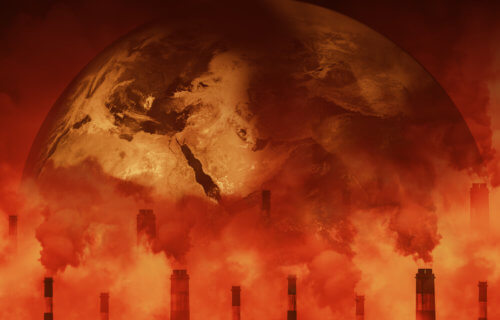BOULDER, Colo. — From chemicals in common household products, to the endless pollutants filling busy roadways worldwide, air pollution is a very real threat to public health. Despite scientists and health officials knowing about these dangers, a new report finds these particles may be killing even more people than anyone thought before. Researchers from the University of Colorado-Boulder say the harmful particles in chemical products and fuels may be contributing to 10 times the number of deaths than previous estimates show.
These tiny particles are in everything, from paints, to pesticides, to charcoal, to the exhaust of vehicle tailpipes. Scientists say they enter into the atmosphere before people breathe them into their lungs. The new review estimates that process could be responsible for up to 900,000 premature deaths.
“That’s more than 10 times as many deaths as previously estimated,” explains study leader Dr. Benjamin Nault from Aerodyne Research, Inc. in a university release.
“The older idea was that to reduce premature mortality, you should target coal-fired power plants or the transportation sector,” Dr. Nault adds. “Yes, these are important, but we’re showing that if you’re not getting at the cleaning and painting products and other everyday chemicals, then you’re not getting at a major source.”
The startling findings come from a review of detailed records on chemical emissions over the last two decades. They span eleven cities across the world, including London, Beijing, and New York. Researchers combined these numbers with sophisticated air quality models and satellite data. These particles, which study authors call “anthropogenic secondary organic aerosol,” cause 340,000 to 900,000 premature deaths a year, according to the results.
Cracking down on particulate matter
The mortality impact also has a strong link to specific organic compounds coming from the activities of people. Many of these chemicals come from the use of industrial solvents, house paints, cleaning products, as well as driving gas-powered cars.
Previous work by the same team reported that the particles from household sources contribute as much as vehicles to the formation of particle pollution.
“What’s new here is that we are showing this is an issue in cities on three continents, North America, Europe and east Asia,” says co-author Dr. Brian McDonald, an environmental engineer at The National Oceanic and Atmospheric Administration.
Air quality regulations tend to focus on volatile chemicals that produce ozone. However, it’s increasingly clear chemicals which contribute little to the hazardous pollutant are just as harmful.
“Because this effect has been thought to be small, it hasn’t been targeted for control,” adds study co-leader Professor Jose-Luis Jimenez from the University of Colorado at Boulder. “But when you take the atmospheric chemistry into account and put it into a model, you find that this particular source is killing a lot of people.”
It’s no secret that particles in the atmosphere small enough for people to inhale can damage their lungs and increase death rates. These particles, known as PM2.5, may lead to more than four million premature deaths globally each year.
Many countries, including the United States, now have laws limiting their release into the atmosphere. They include regulations on byproducts from power plants and diesel exhaust, which are deemed direct sources of particulate matter. Others laws target fossil fuel emissions of sulfur and nitrogen oxides. They can react to form fine particles, an indirect “secondary inorganic” source.
Air pollution goes far beyond big cities
The study, in the journal Atmospheric Chemistry and Physics says anthropogenic secondary organic aerosols should now become a third broad category of chemicals.
Dr. Nault and Prof. Jimenez hope to expand the work to include more urban areas of the world. To this point, the trend is holding so far in all places where there are enough measurements.
“If you care about air pollution impacts on health and mortality, you have to take this problem seriously,” Prof. Jimenez concludes.
Air pollution ranks as the fifth-highest health risk in the world. Governments around the world are under increasing pressure to clean up their air. As transportation gets cleaner through the use of electric vehicles, cleaning up other sources becomes more and more important.
South West News Service writer Mark Waghorn contributed to this report.
